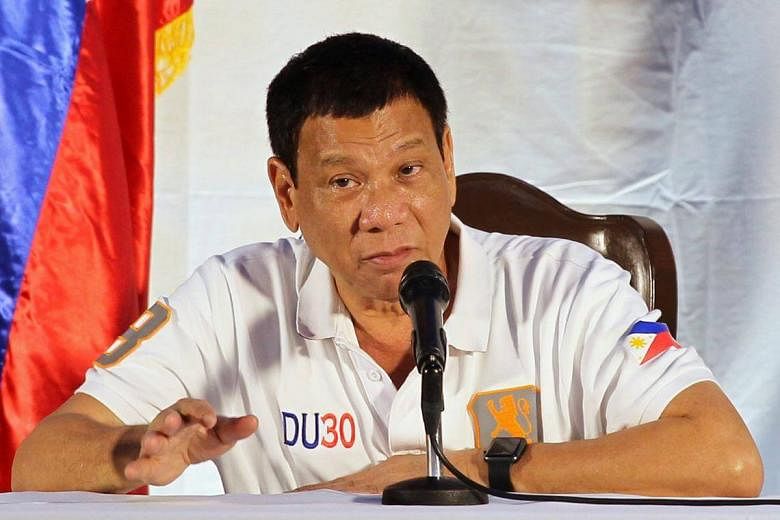Last June 29, a day before Rodrigo Duterte became president of the Philippines, the United Nations Development Program (UNDP) announced the turnover of 55 housing units in Ormoc City to survivors of Supertyphoon "Yolanda."
The units were the first batch in a resettlement program of 165 disaster-resilient houses in three sites-Ormoc, Tacloban City and the municipality of Hernani in Eastern Samar-that the European Union funded through the UNDP's Project Recovery.
The 9.7-million euro grant (S$14.8 million ) was meant to complement national and local government efforts to rehabilitate Yolanda-affected communities by providing them sturdier, more fortified dwellings.
A couple of weeks before that, on June 13, the Philippine government announced its commitment to the United Nations to work to end the rising HIV epidemic in the country by 2030, through a blend of approaches including increased funding by the government and additional support from the world body and other international partners.
LGBT (Lesbian, gay, bisexual and transgender) activist Jonas Bagas noted in a Facebook post that "the UN established the Global Fund, which has funded and is still funding HIV, TB and malaria programmes in the Philippines-including the ones being implemented in Davao."
He added: "The country's PLHIV (people living with HIV) community is in fact heavily relying on international donors for life-saving treatment, among others, because the Philippine government has continuously refused to fund these meds fully."
The UN's World Food Program (WFP) is also present in the country through the nutrition interventions it is doing by providing nutritious, ready-to-eat meals to some 65,000 school-age children in Maguindanao, Lanao del Norte and Lanao del Sur.
Pregnant and nursing women in conflict-ridden or disaster-affected areas also benefit from the food program, and the WFP has worked closely with the Food and Nutrition Research Institute to develop locally-produced fortified food for Filipino kids aged six months to three years old.
In fact, immediately after Yolanda in 2013, the WFP was among the first to launch a relief effort for the survivors, flying in 40 tons of fortified "high-energy" biscuits to the Philippines from Dubai.
The move was all of a piece with other UN mobilisations to rush aid to the country; Secretary General Ban Ki Moon appealed for donors to raise US $791 million (S$1,067 million) for a year-long rehabilitation and recovery program that would, for starters, allot US$38 million of the amount to the local agriculture and fisheries sector through the UN Food and Agriculture Organization (FAO).
Some 128,000 households in the Visayas, Bicol and Mimaropa regions were the specific target of the FAO support.
The UN International Telecommunications Union also deployed 90 satellite phones to support the joint relief efforts by the government and the World Health Organisation, as well as to help survivors re-establish contact with their loved ones in other places.
And so on. What are we to make, then, of the latest outburst from President Duterte?
Last Sunday, he lashed out at the UN for its supposed temerity to question the growing bloodbath triggered by his administration's war on crime and drugs.
But, instead of addressing the issue, the President not only threatened to yank the Philippines out of the UN; he also startled everyone with these words: "Where were you here the last time? Never… When have you done a good deed to my country?"
The only charitable view one could take here is that the President has been grossly misinformed about all the help the UN has extended to the country, and ill-advised on how to deal with its scrutiny of the recent spike in extrajudicial killings.
The Philippines is not only a charter member of the UN, it is also a signatory to the Universal Declaration of Human Rights.
It is not unreasonable to be reminded of that commitment, especially when the human rights violations may appear to be state-directed.
Also, the Philippines' vulnerable position, as a country with 10 million of its citizens working all over the world and subject to other countries' laws, makes it imperative to work with international organizations like the UN to ensure its citizens' welfare. The UN's Ban was among those who publicly lobbied the Indonesian government to spare the life of Mary Jane Veloso in the run-up to her announced execution for drug smuggling.
President Duterte's off-the-cuff governance-policy out of pique-is creating needless problems. If he continues down this truculent path, the Philippines might find itself an international pariah soon enough.
The Philippine Daily Inquirer is a member of The Straits Times media partner Asia News Network, an alliance of 21 newspapers.

